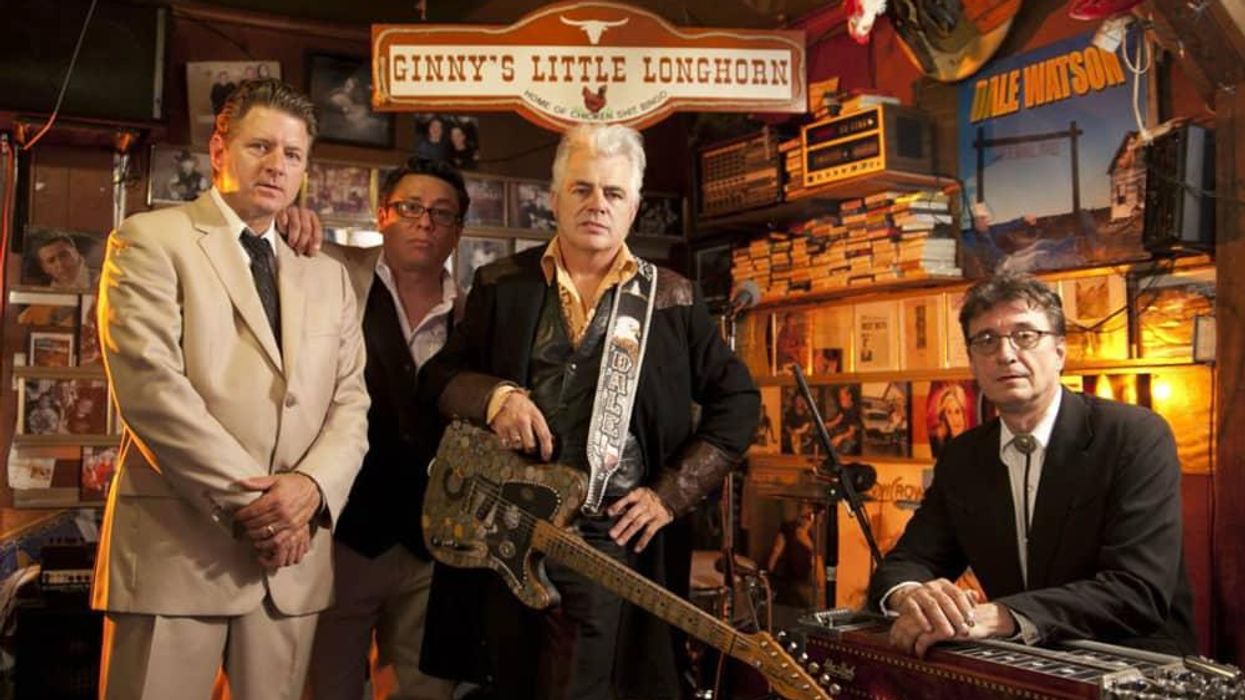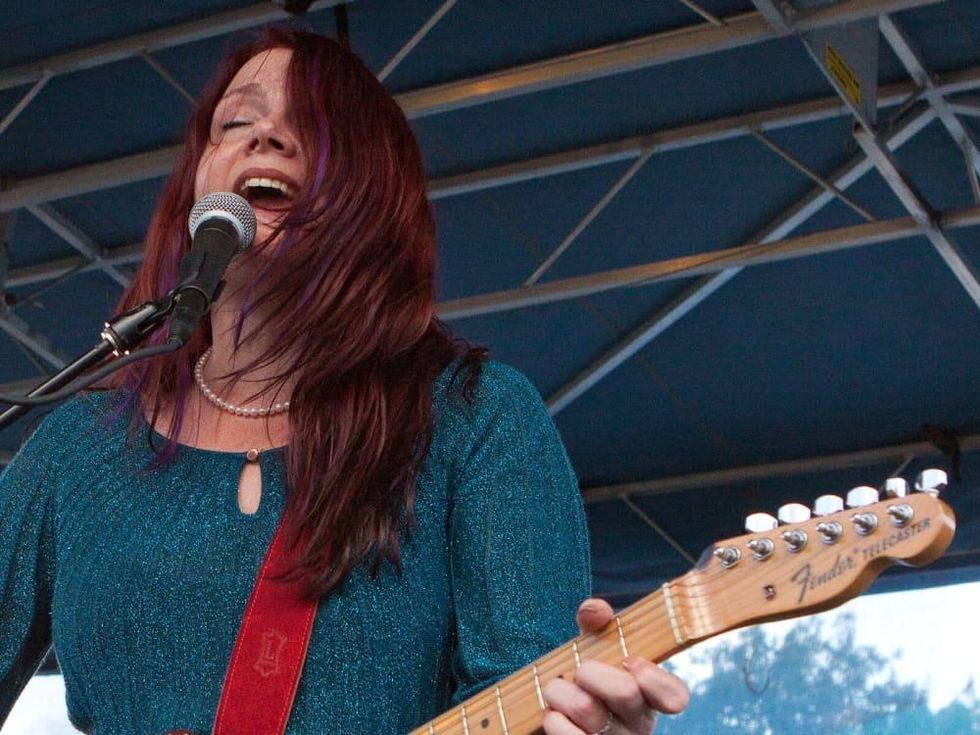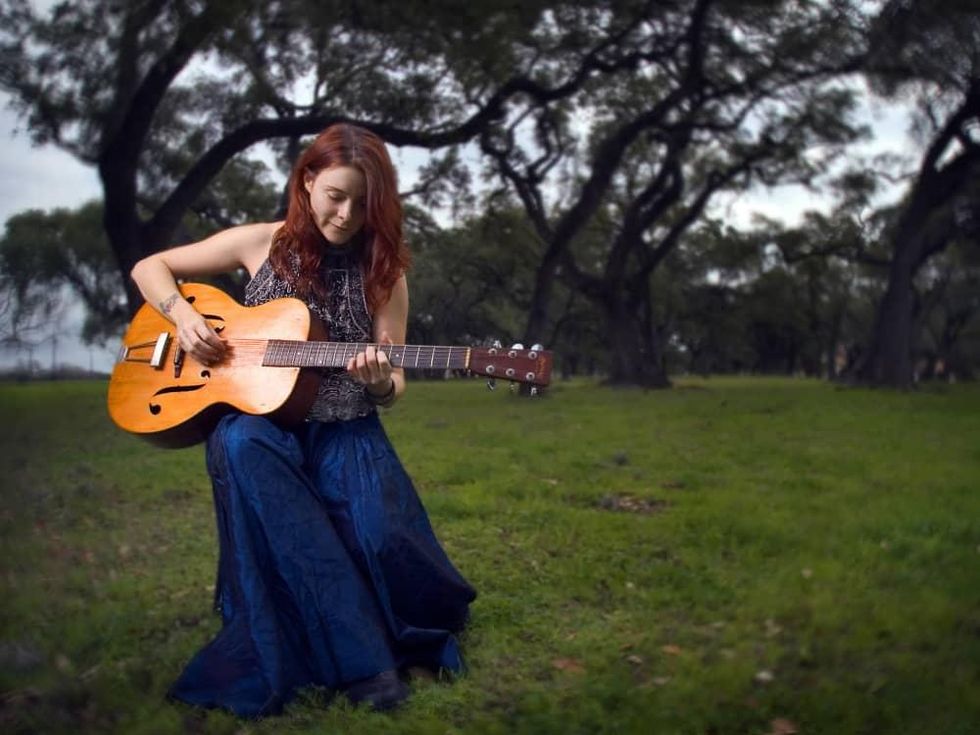Austin Musician on a Mission
Texas crooner Dale Watson talks David Letterman, Nashville revolt and Ameripolitan music
Dale Watson has been a force in honky tonk music since the mid-1990s, when he swapped the commercial confines of Nashville for the authenticity of Austin.
"In Austin, Texas, originality is rewarded, and I didn’t have to do what Nashville was wanting me to do," Watson has said. "Life started here in Austin."
No stranger to producing new material, Watson has released around 20 albums since 1995’s Cheatin’ Heart Attack. His latest album, 2013’s El Rancho Azul, is his best-received release to date. Thanks to standout honky tonk tracks and a summer appearance on the Late Show with David Letterman, Watson and his Lone Stars are enjoying new energy — and a growing fan base — nationwide.
"The David Letterman thing really gave it a big shot in the arm," Watson says of his latest album, El Rancho Azul. "It has changed our mainstream audience."
"The David Letterman thing really gave it a big shot in the arm," Watson says of El Rancho Azul. "It has changed our mainstream audience, and a lot of shows are being sold out."
With the national exposure, new songs like "I Lie When I Drink," which Watson performed on the show, are top requests. "But you know, I’ve had albums out for so long, the trucking songs seem to always endure," he says with a laugh.
Watson has built an international following on original music deeply rooted in the traditions of honky tonk and outlaw country — "derivative music," he calls it.
"Any time I do a regular honky tonk album, I'm lucky enough to have so many influences, and it depends on the type of song who I kind of draw on for the vibe of the song," he says. "I have so many influences, between Johnny Cash, Buck Owens, Merle Haggard, Ray Price and Waylon Jennings."
Listening to El Rancho Azul, the trained ear will hear Waylon Jennings' influence on "Where Do You Want It" and hints of Johnny Paycheck on "I Lie When I Drink." But the overarching theme isn't mimicry; it's originality.
"Our originality comes in with our inability to imitate our influences," Watson says, quoting John Lennon. "And we all start somewhere by imitating our idols and the people we like to listen to."
Whether it’s a classic train song or a new mainstream hit, Watson’s music draws clear lines to its country predecessors, proving that no matter how large his fan base gets, his Lone Star sound will not be diluted by commercial pressure — especially from Nashville.
"One of my main complaints about Nashville music … is whenever you hear interviews with [those] guys — you know, like Rascal Flatts or somebody like that — they say their influences are George Jones and Merle Haggard. And that’s a flat-out lie," Watson says.
"I’m just saying, if you’re going to state your influences, be honest with yourself. You listen to Boyz II Men, you don’t listen to Merle."
"Video killed radio," Watson says, "but the Internet is saving country music — that and satellite radio. It’s saving Ameripolitan."
As a direct reaction to Nashville's abandonment of the genre's roots, Watson and his peers are on a crusade. "We’re kicking off a new genre called Ameripolitan. It’s four categories. It’s honky tonk, outlaw, Western swing and rockabilly," he says.
"Ameripolitan is about keeping the roots — it’s keeping the roots connected." When no one in Nashville was looking, he says, "we got the roots of country music and we planted it in Ameripolitan, in Ameripolitan soil."
To officially launch the genre, Watson is spearheading the first-ever Ameripolitan Music Awards, which will take place in February 2014 in Austin. Funded via a Go Fund Me campaign (all music lovers, no corporate support), the already sold-out show will feature appearances by The Derailers, James Hand, Ray Benson and Rosie Flores.
"It’s beautiful because this thing has grown," he says. "We’ve got radio stations doing Ameripolitan hours in Europe and Missouri and San Antonio. This is the first year doing anything, and it’s taking off like a big dog."
Watson attributes much of the genre’s quick success to accessibility via the Internet. "Video killed radio," Watson says, "but the Internet is saving country music — that and satellite radio. It’s saving Ameripolitan."
Currently touring through the Midwest in support of El Rancho Azul and the Ameripolitan movement, Watson will return to the Texas stage in early September, with shows at Craft Pride and Broken Spoke in Austin (September 5 and 7, respectively) and Blanco's in Houston (September 6).
When he's home in Austin, he plays small clubs that are part of his history, from tiny Ginny’s Little Longhorn to the revered Continental Club.
"I wrote the song ‘I Lie When I Drink’ on the stage at Continental Club, and most of the other songs I wrote at Ginny’s, so they’re not only places that we just play," Watson says. "I hope they’ll be mainstays."



